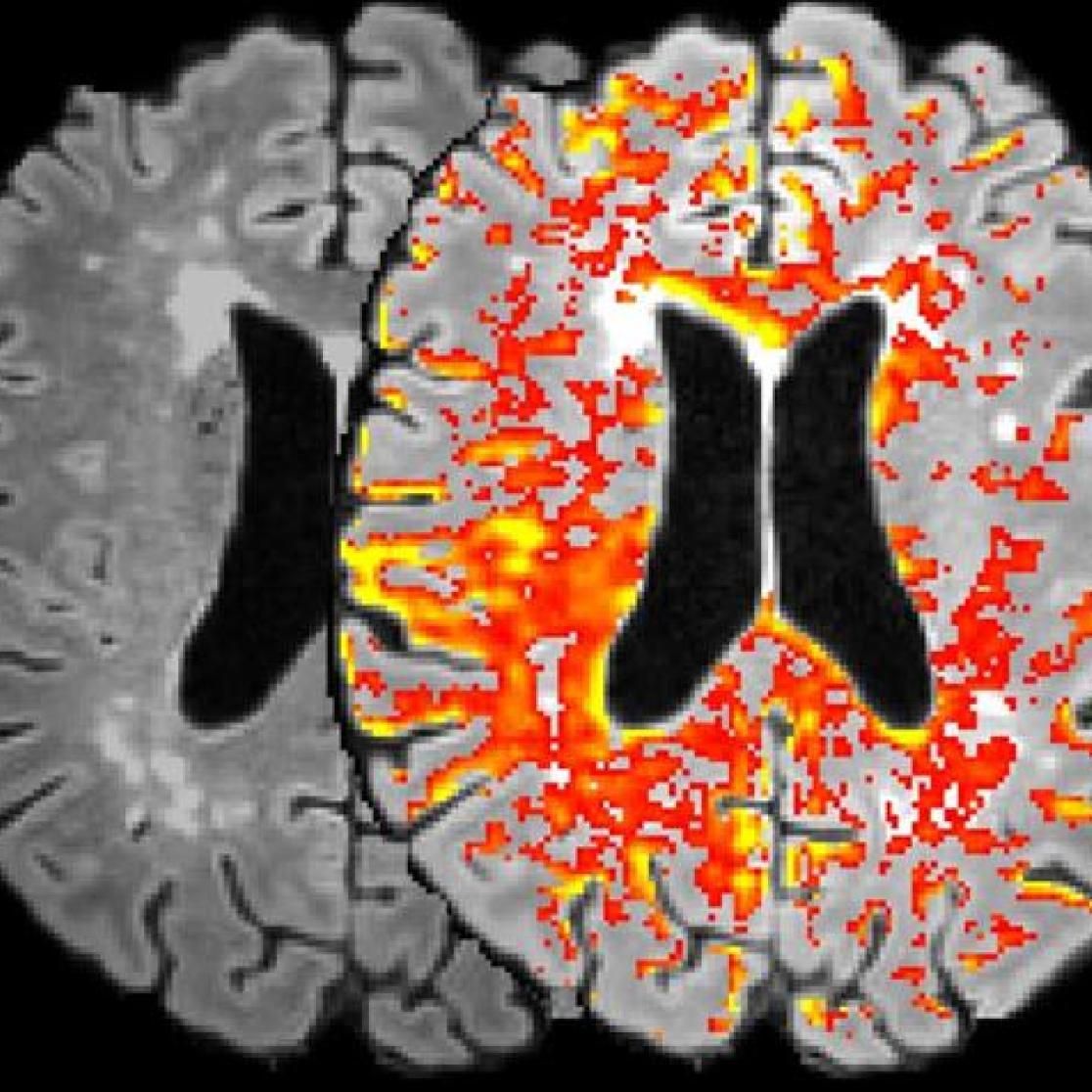Leakage of the blood-brain barrier
Researchers at Maastricht UMC+ used contrast magnetic resonance imaging (MRI) to demonstrate a link between blood-brain barrier leakage and Alzheimer's disease. The results suggest that increased vascular permeability is an important mechanism in the early stages of the disease. These findings were recently published in the leading scientific journal Radiology (MUMC+ news).
The blood-brain barrier (BBB), a collection of cells and structures in the head that separates blood from brain tissue, is responsible for maintaining optimal brain function. The BBB regulates the supply of essential nutrients to the brain and prevents the entry of potential neurotoxins. It also filters out harmful and unnecessary substances. Normally, this BBB system is hermetically sealed for MRI contrast agents, except in the event of a bleed or vascular damage.

Study
A new scanning method was used to study the exchange of substances in the BBB. The researchers used MRI images and a magnetic contrast agent to determine the degree and location of a leak. MRI images of early Alzheimer's patients were compared to those of healthy age-matched control subjects. The leakage rate from blood to brain was significantly higher in the Alzheimer's group than the control group. It was also spread out over a larger area and affected more brain structures. Despite the leaks being extremely subtle, this was the first time they could be measured using new and highly sensitive scanning techniques. 'BBB leakage means the brain has lost its protective barrier, that the normal balance of brain cells is disrupted and that the cells are now located in an unhealthy environment,' explains head researcher, Professor Walter Backes of Maastricht UMC+. 'These mechanisms can ultimately lead to the deterioration of brain cells.'
Cognitive decline
The researchers found a link between cognitive performance and the severity of BBB. This suggests that a leaky BBB may be an early indicator of a cascade of pathological events that eventually lead to cognitive decline and dementia. ‘In terms of Alzheimer's research, this gives us a new tool to study the relationship between a compromised BBB and the development and progression of dementia,' says Backes.
Diagnosis and treatment
While no treatment currently exists for BBB leakage, it is being developed. This study demonstrates that contrast MRI can be an extremely useful diagnostic tool for determining the success of an intervention, such as controlling or suppressing brain bleeds. 'The current technology is new, computationally complex and intensive,' says Backes. 'This method must be further simplified before it can be applied in practice. The effects of treating and preventing vascular risk factors can then be evaluated in a clinical setting.'
Also read
-
PhD research shows impact of aggression on staff and patients in forensic care
Nienke Verstegen, researcher at De Forensische Zorgspecialisten, has conducted research on aggression within forensic care and its impact on patients and staff. On July 6, 2023, she will receive her PhD from Maastricht University with her dissertation 'Hurt people hurt people. Characteristics and...

-
No evidence of brain damage caused by severe COVID-19
Patients admitted to hospital due to a severe COVID-19 infection exhibit no evidence of brain damage caused by the disease. This is the conclusion of an extensive study led by Maastricht University.

-
Cold shivers?
Due to the Western lifestyle with a high fat diet combined with little exercise, more and more people in the Netherlands are overweight or even obese. This causes an increased risk of type II diabetes. What can be done about this besides a healthier lifestyle? The answer comes from an unexpected...
